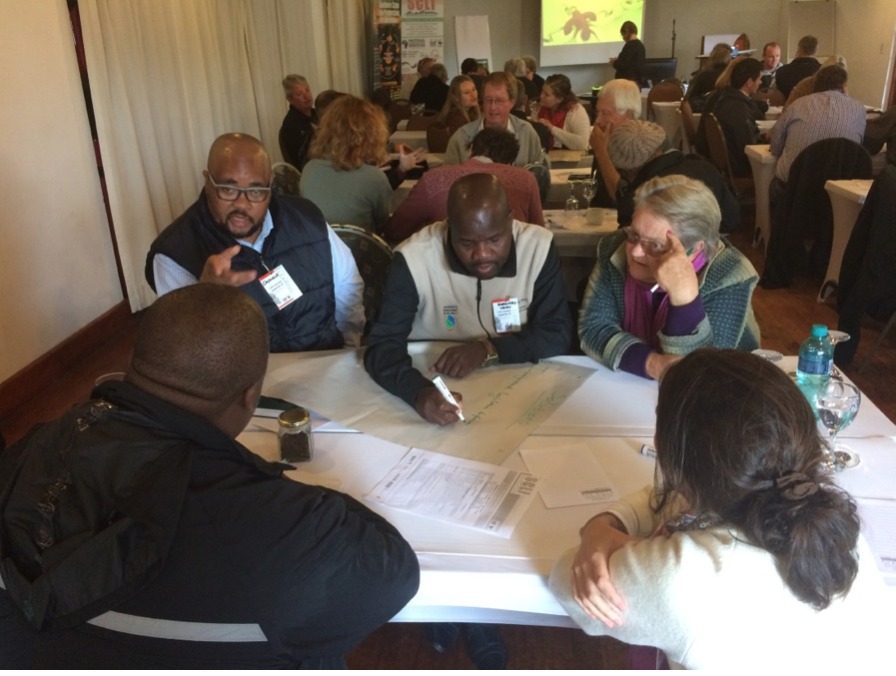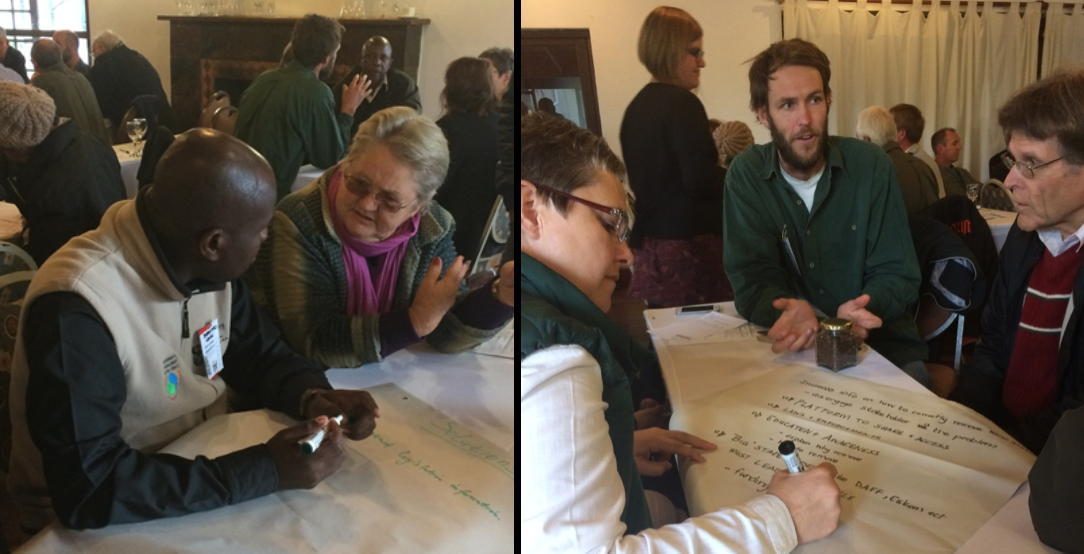SCLI is an “Alliance of the willing”, a public platform for landowners and land managers concerned about alien invasive plants in the Southern Cape to come together and share their stories, learn from each other’s success and failures and find opportunities to work together and share resources where possible. The annual SCLI Seminar took place at the Far Hills Hotel just outside George, on the 25th and 26th of May 2017, with the objective to collectively formulate desired long term strategies and short term goals for the region.
The team used a social learning method of engagement, through facilitated dialogues to encourage participants to discuss issues around alien plants. Social learning has been noted as a method that can help society tackle the complex, messy and wicked problems. The social learning method encourages the sharing of knowledge, stimulates innovative thinking, and exploring possibilities around real life issues and questions. The method assists participant to conduct an in depth exploration of key challenges and opportunities. Social learning also helps people who are meeting for the first time to engage and encourages the deepening of relationships and mutual ownership of outcomes. Participants at the SCLI Seminar were requested to share their knowledge and experiences with others, to actively listen to each other understanding and empathy, to question assumptions, connect ideas, identify links and trends.
Participants at the SCLI Seminar were divided into small groups where they were encouraged to reflect on the complex challenges of alien invasive plants to land management, water security, biodiversity and fire and risk management in the region Stakeholders collectively reflected on how invasive plants impact our lives and the work we do, how we can work together to reduce the risks associated with invasive and to consider what short and long term actions need to be taken for the management of invasive plants.
Several overarching strategies emerged which included the establishment of an umbrella body for the implementation of alien invasive plant removal strategies and forming smaller localised groups within the overarching body. Participants recognised the wealth of data sitting in the hands of isolated stakeholders and suggested that the data be integrated and made available from one site. It was felt that by integrating all available data and maps a more holistic picture of the issue would become visible.
Similar long term strategies were identified across the working groups. These goals included establishing localised networks, collaborations and memorandums of understanding. Another strategy was to improve communication and information sharing through greater efforts in education and awareness rising using various media. The social learning dialogue approach was a break from the typical presentation format and encouraged participants to formulate actionable strategies. However, due to the complex nature of invasive plant management and recognising that there is still a lot of uncertainty, the strategy development needs to be a reiterative process, characterised by experimentation, monitoring, collective learning and adaptation.

SCLI participants engaging is social learning small dialogues at the 2017 Seminar (Source: Bianca Currie 2017)

Participants tackling the tough problem of alien invasive plants in the Southern Cape region through social learning dialogue (Source: Bianca Currie 2017)